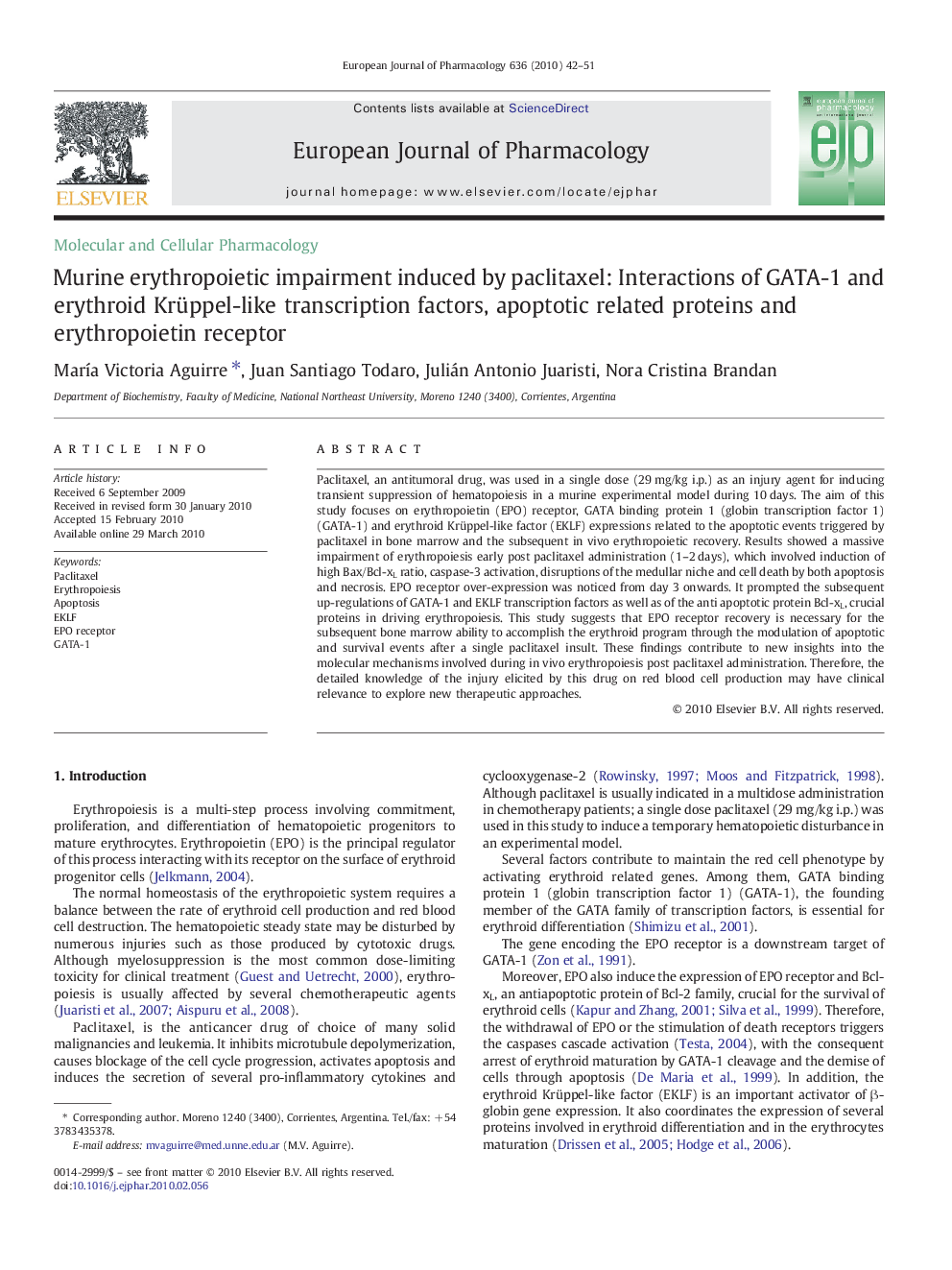| Article ID | Journal | Published Year | Pages | File Type |
|---|---|---|---|---|
| 2533502 | European Journal of Pharmacology | 2010 | 10 Pages |
Paclitaxel, an antitumoral drug, was used in a single dose (29 mg/kg i.p.) as an injury agent for inducing transient suppression of hematopoiesis in a murine experimental model during 10 days. The aim of this study focuses on erythropoietin (EPO) receptor, GATA binding protein 1 (globin transcription factor 1) (GATA-1) and erythroid Krüppel-like factor (EKLF) expressions related to the apoptotic events triggered by paclitaxel in bone marrow and the subsequent in vivo erythropoietic recovery. Results showed a massive impairment of erythropoiesis early post paclitaxel administration (1–2 days), which involved induction of high Bax/Bcl-xL ratio, caspase-3 activation, disruptions of the medullar niche and cell death by both apoptosis and necrosis. EPO receptor over-expression was noticed from day 3 onwards. It prompted the subsequent up-regulations of GATA-1 and EKLF transcription factors as well as of the anti apoptotic protein Bcl-xL, crucial proteins in driving erythropoiesis. This study suggests that EPO receptor recovery is necessary for the subsequent bone marrow ability to accomplish the erythroid program through the modulation of apoptotic and survival events after a single paclitaxel insult. These findings contribute to new insights into the molecular mechanisms involved during in vivo erythropoiesis post paclitaxel administration. Therefore, the detailed knowledge of the injury elicited by this drug on red blood cell production may have clinical relevance to explore new therapeutic approaches.
